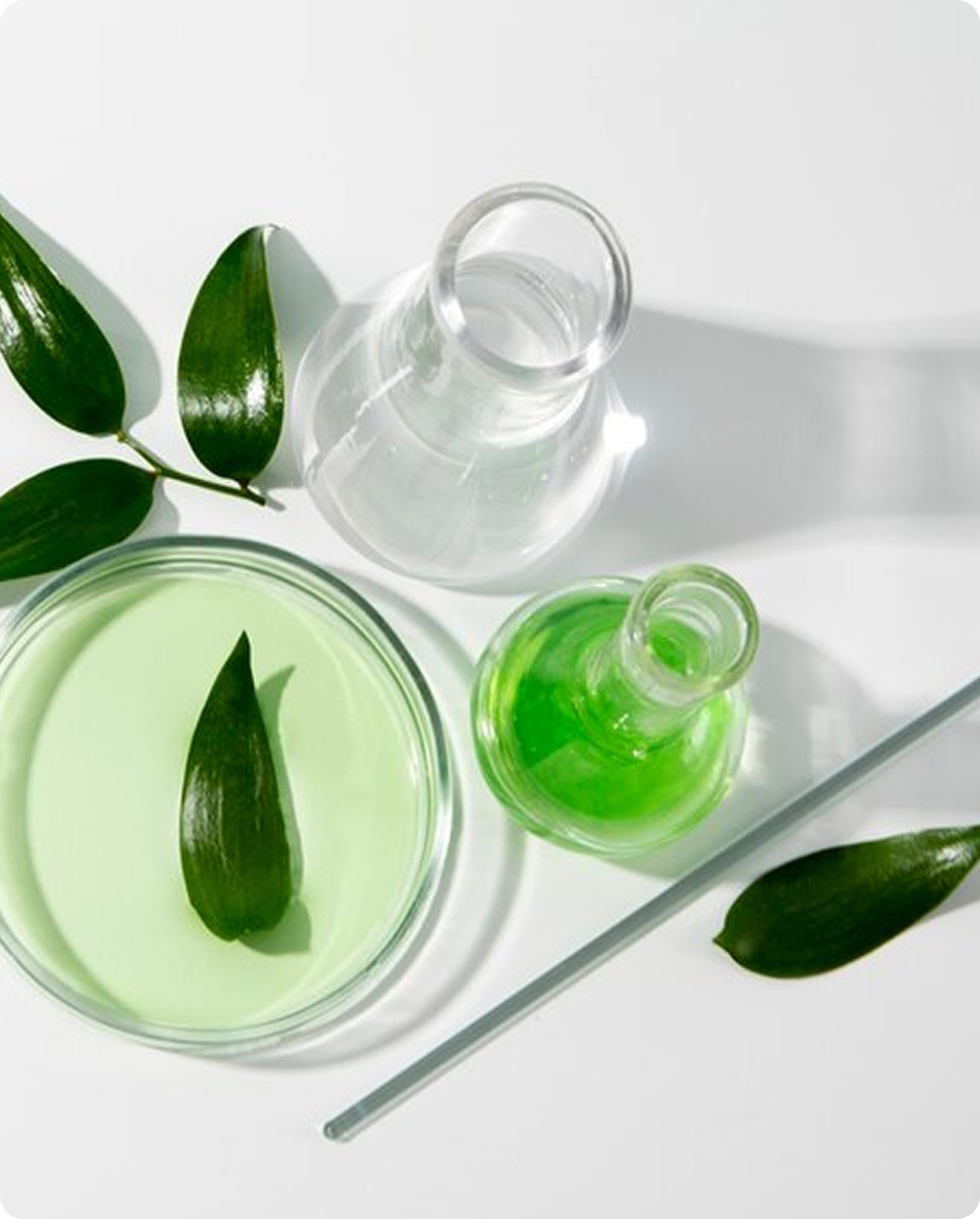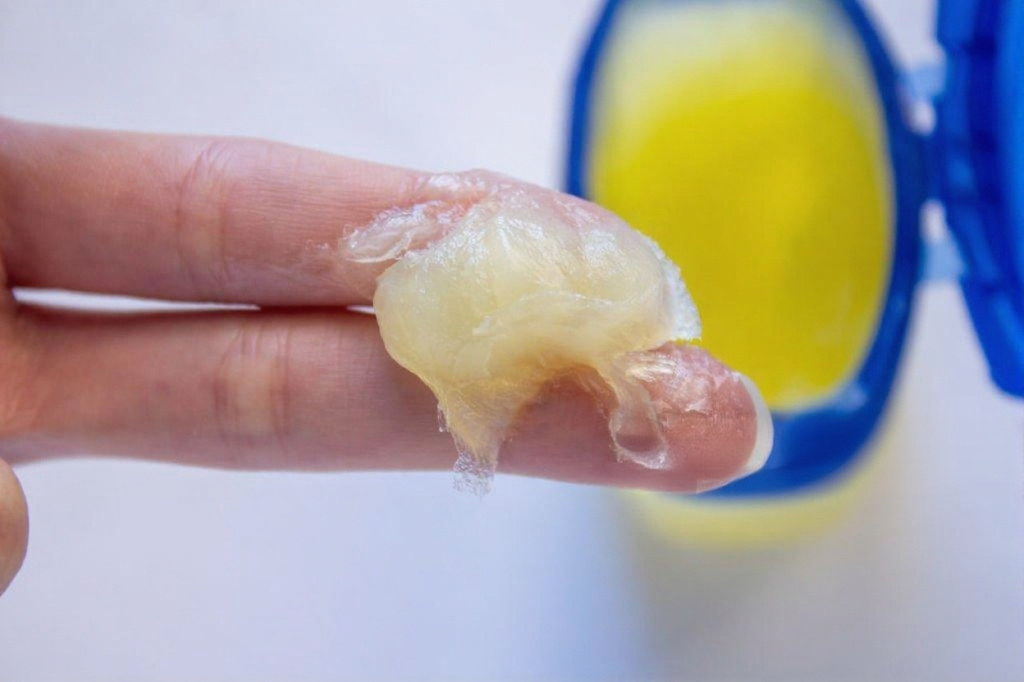Noticed your discharge has a vinegar-like smell? Before you worry, here's what you need to know: that slightly tangy scent is often your body's way of telling you everything's working exactly as it should.
Your vagina naturally maintains an acidic pH between 3.8 and 4.5 [1, 2]. This acidity comes from beneficial bacteria called Lactobacilli that live there naturally, producing lactic acid and keeping harmful bacteria at bay [3]. When they're thriving, that mild vinegar smell? That's actually a good sign.
But let's dig deeper into what's really happening down there.
Your Vagina's Natural Chemistry
Think about lemon juice or vinegar in your kitchen. They're acidic, right? Your vagina works similarly, maintaining that protective acidity through an intricate bacterial ecosystem. Lactobacilli are the stars of this show, making up about 70% of a healthy vaginal microbiome [1]. They're constantly producing lactic acid, hydrogen peroxide, and other compounds that create an environment where beneficial bacteria flourish and harmful ones can't survive [5].
This is why humans are actually unique among mammals. While other animals have neutral or alkaline vaginal environments, we've evolved this acidic system as our primary defense against infections [1]. Pretty amazing when you think about it.
So when you notice that tangy, slightly sour smell, you're literally smelling the byproducts of your body's natural protection system at work.
When That Vinegar Smell Gets Stronger
Now, you might notice this smell becomes more pronounced at certain times. That's completely normal too.
Your vaginal pH fluctuates throughout your menstrual cycle. Right before and after your period, your body might ramp up lactic acid production to rebalance things, making that vinegar scent more noticeable. Hormonal contraceptives can also influence this balance, sometimes making the acidic smell stronger or weaker depending on how they affect your natural hormone levels.
Sexual activity plays a role too. Semen is alkaline (the opposite of acidic), so after sex, your vagina works to restore its natural acidity. You might notice a stronger vinegar-like smell for a day or two as your Lactobacilli get back to work.
Dehydration can concentrate all your body's fluids, including vaginal discharge. When you're not drinking enough water, normal smells become more intense. It's like the difference between diluted lemon juice and concentrated lemon juice.
Even things like sweating more than usual, wearing tight clothing, or stress can temporarily affect your vaginal environment and make normal odors more noticeable.
Understanding the Difference: Mild vs. Strong Vinegar Smell
Now here's where things get practical. You've probably noticed I keep saying "mild" vinegar smell is normal, but what exactly does that mean? And if the smell can get stronger during normal times, how do you know when it's crossed into concerning territory?
Let's clear this up once and for all.
That normal, healthy acidic smell should be subtle enough that you mainly notice it during personal hygiene moments or intimate situations. It might remind you of plain yogurt, sourdough starter, or a very mild tangy scent. You shouldn't be able to smell it through your clothing, and it definitely shouldn't make your nose sting or your eyes water the way actual cleaning vinegar would.
Now, can it become more noticeable sometimes? Absolutely. Right after your period, after sex, or when you're dehydrated, that acidic smell might be stronger than usual. But even when it's more noticeable, it should still be in that "subtle tangy" category, not "sharp and overwhelming." And importantly, these temporary increases should settle back down within a day or two.
Here's how to think about your own situation: Can you only smell it when you're specifically checking, or is it noticeable without trying? Does it remind you of food or something natural, or does it smell chemical and harsh? Has it been at this intensity for just a day or two, or has it persisted for over a week?
Remember, some women naturally have a more noticeable acidic smell than others, and that's completely normal. What matters is changes from YOUR baseline, not comparing yourself to what you think everyone else should smell like. The concern is about intensity that seems off for your body, not absolute comparisons.
If your vinegar smell has crossed into that sharp, overwhelming territory and stays there for more than a few days, that's when it's worth investigating further.
When Vinegar Smell Becomes a Concern
While most vinegar-like smells indicate healthy vaginal acidity, there are rare instances when a strong, persistent vinegar smell might signal an imbalance.
If your vinegar smell has become persistently strong, sharp, and doesn't return to your normal baseline after a few days, especially if it's accompanied by other symptoms like itching, burning, unusual discharge, or pain during sex, it might indicate a rare condition called cytolytic vaginosis.
Cytolytic vaginosis, also known as Lactobacillus overgrowth syndrome, is essentially the opposite of bacterial vaginosis. Instead of too few beneficial bacteria, you have too many Lactobacilli producing excessive lactic acid. This can create an overly acidic environment (pH below 3.5) that causes a strong sour or vinegar-like smell along with discomfort [6].
Research suggests cytolytic vaginosis affects approximately 5% of women experiencing vaginal symptoms, though estimates range from 1.7% to 26.7% depending on the study [7]. For comparison, bacterial vaginosis affects about 24-29% of women, making it far more common. Among women with recurrent vulvovaginal symptoms, one study found cytolytic vaginosis in about 27% of cases [8]. The wide range in reported prevalence is partly because this condition is often misdiagnosed as a yeast infection.
This condition is rare and somewhat controversial in the medical community, as not all doctors recognize it as a distinct diagnosis. Symptoms often worsen during the luteal phase of your menstrual cycle (after ovulation) and may include persistent discharge, itching, and burning sensations.
It's important to note that if you do have cytolytic vaginosis, the treatment is actually the opposite of most vaginal pH issues. Instead of acidifying products, treatment involves temporarily raising the pH with baking soda solutions under medical supervision.
For contrast, if your smell is fishy rather than vinegar-like, that typically indicates bacterial vaginosis, which is a completely different condition with different causes and treatments.
When to Actually Worry
Most of the time, that vinegar smell is your friend. But there are times when any strong or persistent odor deserves attention.
Remember that clear distinction between mild and strong we just discussed? If your vinegar smell has crossed into that sharp, overwhelming territory and stays there for more than a few days, or if it's accompanied by other symptoms like unusual discharge colors (green, yellow, or gray), itching, burning, or pain during urination or sex, it's time to check in with your healthcare provider [3, 4].
Your doctor can quickly test your vaginal pH and examine your discharge under a microscope to determine what's going on. These simple tests can distinguish between normal variations and actual infections that need treatment.
The key is knowing your own normal. Some women naturally have a stronger acidic smell, while others barely notice any odor at all. Changes from your baseline are more significant than comparing yourself to what you think is "normal" for everyone else.
Supporting Your Natural Balance
Here's the thing: if you're experiencing that normal vinegar smell, you don't need to "fix" anything. Your vagina is maintaining its healthy pH on its own, and that's exactly what you want.
Your best bet is to support this natural process rather than disrupt it. Wash your vulva with plain warm water (soap isn't necessary and can actually throw off your pH). Choose breathable cotton underwear over synthetic fabrics. Stay hydrated. These simple practices help your body do what it already knows how to do.
But what if your pH has actually become elevated? Maybe you've just finished your period, completed a course of antibiotics, or you're dealing with symptoms that suggest a real imbalance rather than normal variation.
This is where targeted support can be helpful. Lactic acid can help restore that natural acidity more quickly. This is particularly useful if you're dealing with bacterial vaginosis symptoms or recovering from an infection. Neycher's BV Away contains lactic acid along with soothing ingredients like aloe vera to help rebalance your pH while providing comfort.
However, if you're dealing with persistent strong vinegar smell with symptoms that might indicate cytolytic vaginosis, acidifying products would not be appropriate and could make symptoms worse. This rare condition requires medical evaluation and different treatment approaches.
The goal isn't to eliminate all odor (that would actually be concerning), but to support your body's natural ability to maintain the right balance.
What This All Means for You
That vinegar-like smell in your discharge? It's usually your vagina's way of saying "all systems go." Your Lactobacilli are producing the lactic acid that keeps your pH in that protective 3.8 to 4.5 range, creating an environment where you're less likely to develop infections.
Understanding this can actually be empowering. Instead of worrying about every scent, you can recognize the signs of a healthy vaginal environment. You'll know when something genuinely changes versus when your body is just doing its normal fluctuations.
The most important thing is learning what's normal for you specifically. Some women naturally have a more noticeable acidic scent, while others barely detect any smell at all. Both can be completely healthy.
Pay attention to changes rather than absolute standards. If your normally mild vinegar scent suddenly becomes very strong, or if it changes to a fishy odor, that's when it's worth investigating further.
Medical Disclaimer: This article is for educational purposes only and does not constitute medical advice. Always consult with a qualified healthcare provider for personalized medical guidance, especially if you experience persistent symptoms or have concerns about your vaginal health.
References
[1] Miller, E. A., Beasley, D. E., Dunn, R. R., & Archie, E. A. (2016). Lactobacilli Dominance and Vaginal pH: Why Is the Human Vaginal Microbiome Unique?. Frontiers in microbiology, 7, 1936. https://doi.org/10.3389/fmicb.2016.01936
[2] O'Hanlon, D. E., Come, R. A., & Moench, T. R. (2019). Vaginal pH measured in vivo: lactobacilli determine pH and lactic acid concentration. BMC microbiology, 19(1), 13. https://doi.org/10.1186/s12866-019-1388-8
[3] American College of Obstetricians and Gynecologists. (n.d.). Think You Have a Vaginal Infection? Here's What You Need to Know. Retrieved from https://www.acog.org/womens-health/experts-and-stories/the-latest/think-you-have-a-vaginal-infection-heres-what-you-need-to-know
[4] Mayo Clinic. (2023, June 10). Bacterial vaginosis - Diagnosis and treatment. Retrieved from https://www.mayoclinic.org/diseases-conditions/bacterial-vaginosis/diagnosis-treatment/drc-20352285
[5] Gopinath, S., et al. (2024, October). Vaginal microbiome research uncovers new findings for women's health. Cell Host & Microbe. As reported by Harvard T.H. Chan School of Public Health. Retrieved from https://hsph.harvard.edu/news/vaginal-microbiome-research-uncovers-new-findings-for-womens-health/
[6] Cibley, L. J., & Cibley, L. J. (1991). Cytolytic vaginosis. American journal of obstetrics and gynecology, 165(4), 1245-1249.
[7] Kraut, R., et al. (2023). Scoping review of cytolytic vaginosis literature. PLoS One, 18(1), e0280954. https://doi.org/10.1371/journal.pone.0280954
[8] Yang, S., et al. (2016). Clinical significance and characteristic clinical differences of cytolytic vaginosis in recurrent vulvovaginitis. Gynecol Obstet Invest, 82, 137-143.








